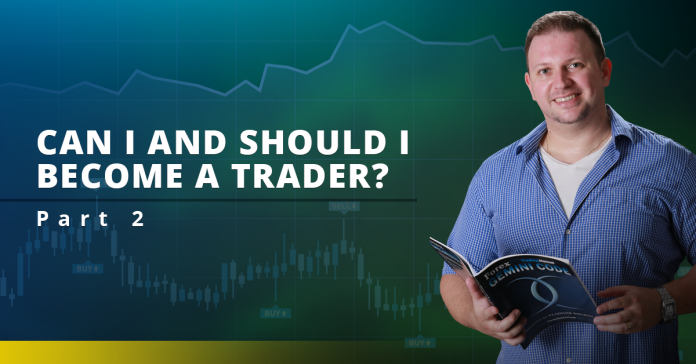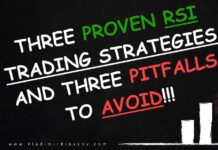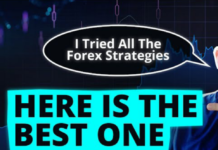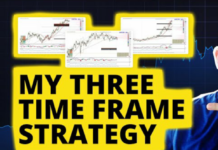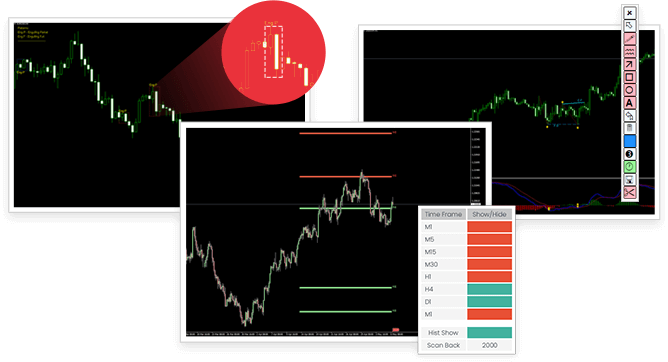
In the first part of the article “Can I and should I become a trader” I covered the types of traders and the advantages of being a trader along with other important factors worth considering. If you haven’t read it, please start with part one.
Today as promised I will cover the following:
- Disadvantage of being a trader
- Risks
- Reward
- Knowledge
- Required Skills
become a trader – disadvantages
Capital
From my experience one of the main issues is raising the capital. I know many good traders who simply can’t afford to put 10 or 20k into their live account. Yes of course many start with 500 or 1000 dollars BUT everyone wants to make the big bucks right away. And since such capital will allow you to only get a few dollars of profits in a week or a month, many ditch their risk and money management in pursuit of higher returns on their small account.
This is how accounts get killed. Good strategy, good money management, good performance on demo account and once live trading is a fact, problems begin due to the greed.
When talking about the capital it is also important to mention that you shouldn’t be using money you can’t afford to lose. I have said that many times and i will continue repeating it. Don’t use your children’s college fund or your mortgage/food money. This will put enormous pressure on your trading and will lead to bad decisions.
Here is an example. It is all about the statistics in trading. If you are in a long trade and there is a deep correction towards your stop loss, your nerves may not sustain the pressure of a loss and you try to cut the losses early. Of course the price retraces back up and there you go, you have turned a winning trade into a losing one.
On the other hand if you trading with money that you are ready to lose that pressure won’t be there. You just follow the rules of your strategy that has proven to work in the demo stage and numbers add up.
Lonely profession
Home trader’s profession could be a lonely occupation. Yes you are the owner of the business, yes you pick your own hours but that comes with a price.
My advice is, regardless whether you are a part-time trader or a full time trader to find yourself a community of other traders – be that may online or offline. Being a member of such group will bring you only benefits.
You can share ideas with other traders you can ask for advice the more advanced ones, you will have good laughs during the times when nothing is there to be traded as opposed to forcing trades that you shouldn’t be in.
In a word – it brings balance.
Risks
Financial Loss
Obviously the risk of financial lost is on the top of the lists of risks. Unfortunately the statistics are not in a favor of the trader with more than 90% losing money. However if you approach the business of trading the right way with good money and risk management, even if you don’t make money, you won’t lose much.
As a matter of fact you should first of all learn how to protect your capital before learning to make returns on it.
Leverage/Margin
Trading with leverage and trading on margin opens a lot of doors for the retail trader. Very small amount of money can bring a lot of profits but it could also go the other way and cause huge losses.
There are margin requirements which you should get familiar with. Every broker has it’s own rules so check with yours. If you are trading wisely though you should never reach the “margin call” level. A big drawdown in equity or balance should be e red alert for you that something is not done correctly. Anything above 10-15% drawdown is a reason to stop and review your history.
Regulations
Choosing the right broker could make the difference between success and failure. Brokers are not famous with their honesty. In fact there are more than enough cases when brokers try and succeed to trick clients. Spread widening (not during news) to hunt stops is one of the most commonly seen issue.
When choosing a broker check for regulations. Also it is a good idea to stick with brokers who have survived historical events if i can call them with such name. One such example is the removal of the Swiss Franc Cap. Many brokers closed doors after this events which says enough.
Rewards
The rewards of being a trader as mentioned in the first part of the articles are plenty.
Trading is one of the jobs that allows you to work literally anywhere in the world. All you need is a computer and internet connection. Nothing is holding you back.
The potential growth is unlimited. It all depends on you and your motivation. Almost nothing is impossible. Karen “the million dollar trader” is a great example. She started at the age of 50 if i’m not wrong. She was an accountant her whole life and managed to switch to trading pretty fast and with a big bang. Within very short period of time she built an empire. She is trading millions at the moment.
So really nothing stops you besides you.
Trading gives you freedom that almost no other job will. Maybe i’m biased saying that but i really and trully believe that it is one of the best jobs one could have!
Knowledge
Another completely awesome fact about trading is that minimum knowledge, applied the right way equals profits. A lot of profits. Compared to professions such lawyers and doctors where you will have to go to school for years. Many in the US for example would be stuck with huge student loan once they graduate.
This is awful no matter how you spin it. Imagine yourself at 25 with 200k debt. Not scary at all…
I’m not saying that you will become a successful trader within a week or a month but the risk:reward is definitely on your side. Again i will give the example with Karen. According to her word’s, she went to a seminar, got into trading and achieved what many people won’t achieve in 3 lives.
Knowledge and education is highly accessible and relatively cheap. When you come to the point where you have a good history record, you can easily apply to a brokerage houses and hedge funds. No one, believe me no one cares if you have bachelor or 3 master degrees. You either make money trading or you don’t. I have more examples in front of me to be 100% sure when i tell you that.
Yes it is possible that you will be asked for diploma but there is a huge chance you will find a job without one if you are a good trader!
8 Trading Survival Skills
Don’t get scared when you read the list below. These are all skills that are learnable. No one was born ready for life. We make baby steps literally and figuratively since day one. If you set it as your goal you will do it. You are the only one who can find an excuse not to complete the goals you have set.
Winners find a solutions, losers find an excuses.
The skills needed for a retail trader and institutional trader could differ slightly but the list is more or less the same in its cores:
- Analytical Skills
- Consistency
- Strong Focus
- Organized
- Emotionally Balanced
- Hard Worker
- Discipline
- Patience
Do you think there are other important skills a trader must posses? Please share them in the comments section below.
These are the essential qualities you must work on when you start trading. We all have them to a certain extend. Some more, some less. Try to make a list of your strongest and weakest qualities from this list. Have an idea on what you should be focusing more. Having your plan back in white makes a huge difference.
I hope these 2 articles will be helpful to you figuring out whether the profession of a trader will suit you or not.
Please give me your feedback in the comment section and I will get back to you as soon as possible. And of course if you like it please do share it!
Yours,
Vladimir

